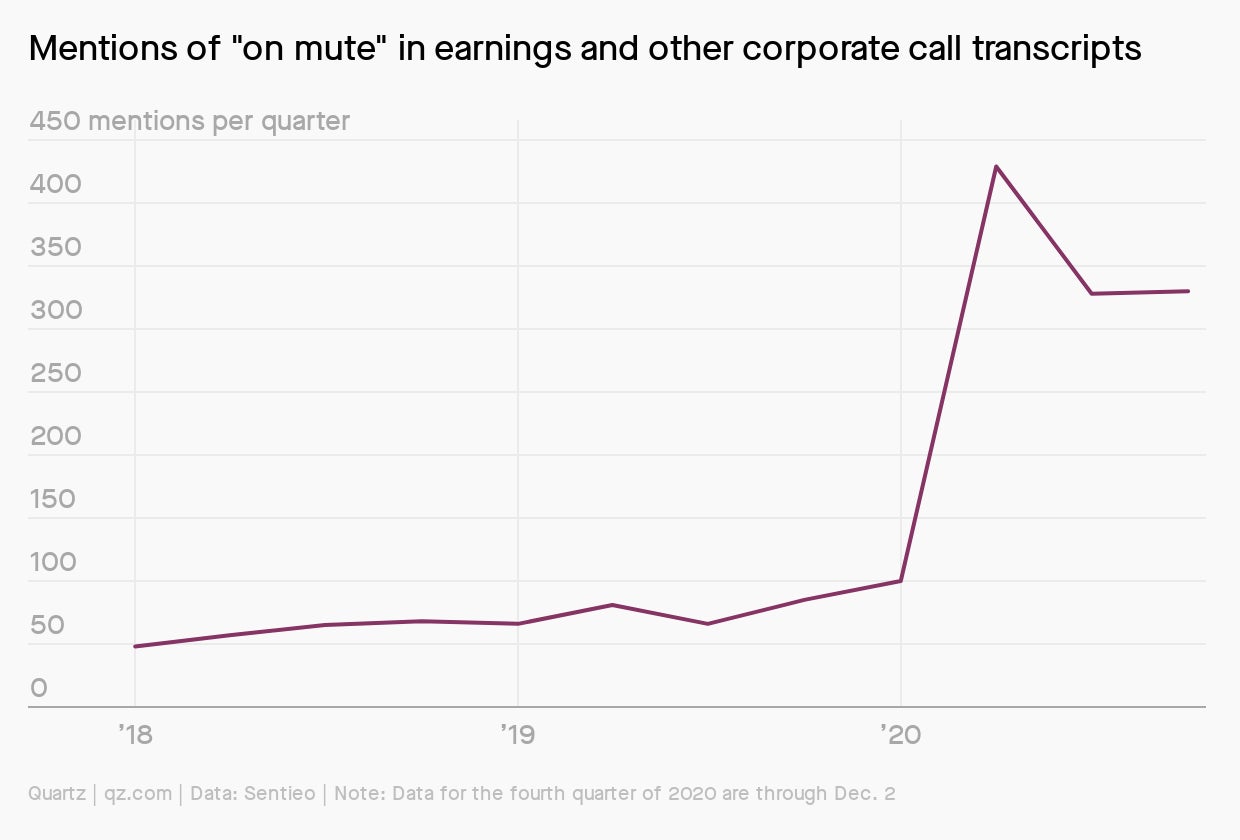Fauci apologizes, mute problems, yet another monolithy
Good morning, Quartz readers!

Good morning, Quartz readers!
Here’s what you need to know
Anthony Fauci apologized to UK drug regulators. The top US infectious disease official had said Britain “rushed” the approval process for the Pfizer/BioNTech vaccine, but later claimed he “did not mean to imply any sloppiness,” and suggested the US isn’t far behind. “We’ll be there very soon,” he added.
The US is reportedly in talks to let a Chinese executive return home. According to the Wall Street Journal (paywall), Huawei CFO Meng Wanzhou could leave Canada in return for admitting wrongdoing in a fraud case. She’s been awaiting extradition to the US, a situation that has infuriated China, since her arrest two years ago.
The US justice department sued Facebook over foreign workers. The lawsuit alleges that the tech giant’s use of H1-B visas, which have since been highly restricted by the Trump administration, discriminated against thousands of qualified US job applicants. Facebook disputes the allegations.
Boeing found its first post-crash 737 Max buyer. Irish discount carrier Ryanair agreed to buy 75 of the troubled jets, making it the first airline to place a new order since US regulators cleared the plane to fly again. The deal is a much-needed win for Boeing, which has seen 10% of its outstanding Max orders canceled.
New Warner Bros movies will immediately be available to stream in 2021. The company has 17 planned releases next year, and in a surprise move, they’ll be on HBO Max at the same time as in theaters, rather than the usual 90-day wait for home audiences.
Charting everyone’s favorite holiday song
Mariah Carey’s “All I Want for Christmas is You” cannot be stopped. Already one of the most popular songs of all time, and the source of more than $60 million in royalties for Carey, the song appears to be more popular than ever in 2020.
The success of “All I Want for Christmas is You” is even more remarkable given the large decline in Spotify streams for the platform’s biggest hits. Dan Kopf unpacks this annual gift from Mariah to us.

Mute problems are universal
“Chip, I think you’re on mute,” Harmit Singh, CFO of Levi’s, told the company’s CEO, Chip Bergh, on an Oct. 6 call. “I’m on mute, yes,” Bergh replied. “You would think after doing this for seven months, I would figure out the mute button.”
Maybe Bergh can take comfort from the fact that he isn’t alone. Mentions of “on mute” by executives and analysts have spiked since the pandemic began earlier this year. Marc Bain has rounded up some of the best quotes from executives who can’t quite figure it out.

✦ Hi, can you hear us? Oh sorry, we were on mute. We were just saying we wanted you to sign up for a seven-day free membership trial.
You asked about herd immunity through vaccines
When could we get herd immunity via Covid-19 vaccines? Or, in other words, how many people need to be vaccinated for life to go back to normal?
Ah normalcy! That elusive goal. We can achieve herd immunity when enough people are protected from a virus (in this case, by a vaccine) that they prevent the spread of it to those who aren’t protected. To reach herd immunity, we need to consider two factors:
First, we need to know how well Covid-19 vaccines can prevent virus transmission. From phase 3 clinical trials so far, we’ve learned that vaccines have a range of efficacy against Covid-19—the illness caused by SARS-CoV-2. What we don’t know is how well they prevent the virus from being spread. Because antibodies generated via vaccines prevent the virus from replicating, we can expect that vaccines should decrease the chances that someone who is vaccinated could pass it on to someone else—but we still need more clarity.
Second, we need to know vaccines’ real-world effectiveness. This is likely going to be lower than clinical trial efficacy because, well, life isn’t a perfectly controlled clinical trial. Some people may not get both their doses, or have optimal timing in between, which will affect how well they’re protected. The lower the effectiveness of a vaccine, the more people need to be vaccinated in order to achieve herd immunity.
Scientists estimate that each person with SARS-CoV-2 can infect two to three people. If vaccines can prevent transmission, and if their effectiveness is close to their clinical trial efficacy, that means herd immunity will likely be achieved when 60% to 70% of people in a community are vaccinated. If effectiveness is less, or if the vaccine still allows some transmission, vaccination rates will have to be higher.
Surprising discoveries
The first commercial Christmas card is up for sale again. Produced in 1843, it depicted an English family toasting the recipient with glasses of red wine—and caused some controversy at the time.
A Namibian man named after Adolf Hitler has won a local election. The politician, who was elected councilor in the Ompundja constituency, said he has no intention of dominating the world.
Egypt launched a large-scale investigation of a model’s photo shoot. Salma El-Shimy was arrested for posing near a pyramid in Giza.
An Australian woman found a koala in her Christmas tree. The marsupial had nestled itself gently among the ornaments.
A third monolith appeared in California. It feels like there should be some sort of point to it all by now.
Our best wishes for a productive day. Please send any news, comments, uncontroversial holiday cards, and Houdini-like monoliths to [email protected]. Get the most out of Quartz by downloading our iOS app and becoming a member. Today’s Daily Brief was brought to you by Hasit Shah, Jane Li, Tripti Lahiri, Susan Howson, and Nicolás Rivero.